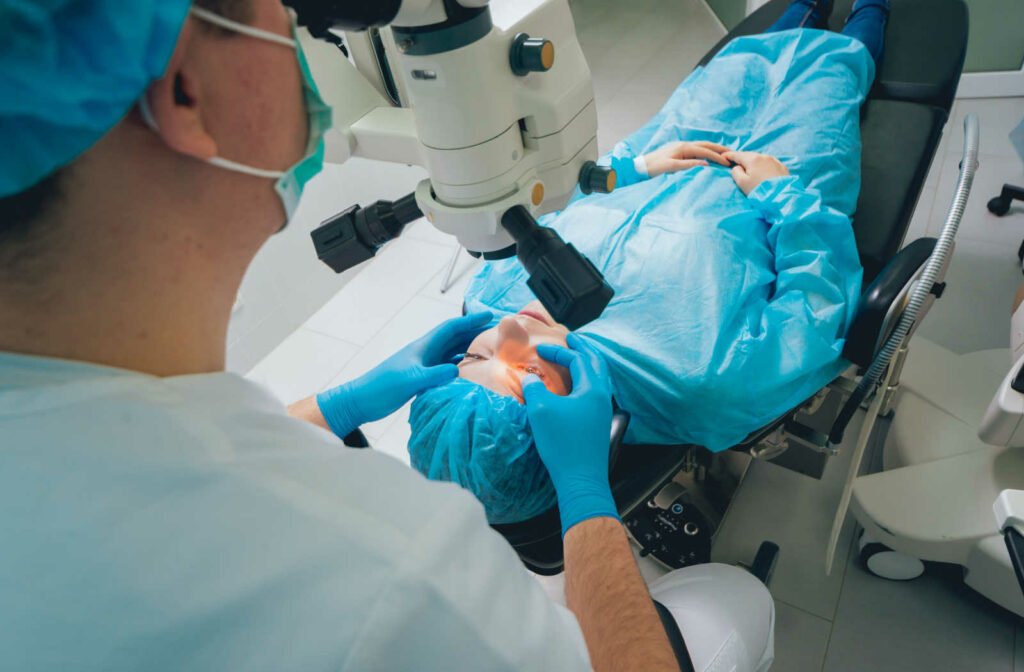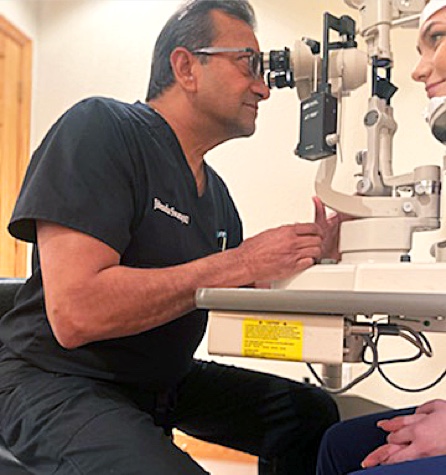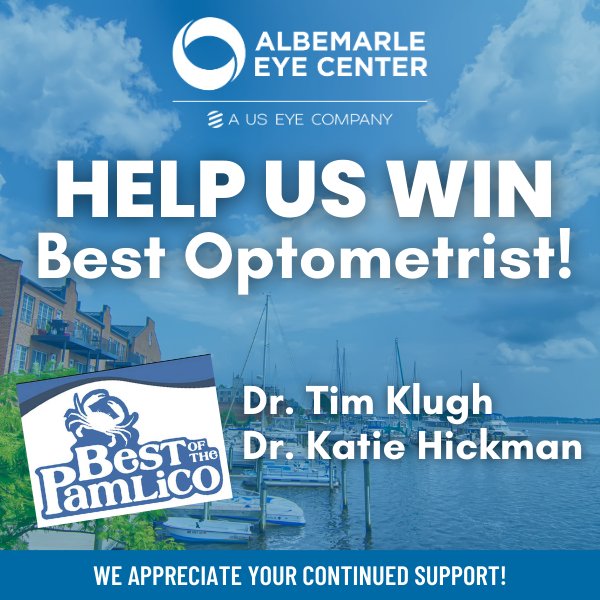Cataracts are a natural part of aging and people may have some cataract development at 40. Cataracts usually develop gradually over time, and you may not notice any changes to your vision in the early stages. With no initial symptoms, it’s essential to have regular eye exams to check for eye conditions such as cataracts.
In the beginning, prescription glasses, magnifying lenses, or brighter lighting can help you see better. But you may require surgery if your cataracts start to impact your quality of life.
Cataract surgery removes the cloudy lens and replaces it with an artificial intraocular lens (IOL). IOLs come in different prescriptions and may correct any vision problems you have along with removing the cataracts themselves.
Cataract surgery is one of the most common operations in the US and 9 out of 10 people who get it can see better afterward.
What Are Cataracts?
Your eye’s natural lens is clear and flexible, and it helps bend or refract light that enters your eye to allow you to see at various distances. When you develop cataracts, your natural lenses become cloudy, making your vision blurry, hazy, or foggy.
The most common cause of cataracts is age. As you grow older, the proteins in your lens start to break down and clump together. Your risk for developing cataracts can also increase with the following factors:
- Family history of cataracts
- Medical conditions, such as diabetes
- Smoking
- Eye injury or surgery
- Radiation treatments on your upper body
- Excessive time spent in the sun
- Certain medications, such as corticosteroids
Age-related cataracts can develop gradually, whereas cataracts in younger people or those with health concerns like diabetes can develop more quickly.
If you have cataracts, you may experience symptoms like:
- Blurry or cloudy vision
- Double vision
- Sensitivity to light from lamps, sunlight, or headlights
- Halos around lights
- Trouble seeing well at night
- Colors look faded or yellow
- Frequent changes in prescription glasses

How Does Cataract Surgery Correct Vision?
If cataracts impact your vision and lifestyle, surgery is the only way to remove them. An ophthalmologist will perform laser cataract surgery to replace the lens. Here is what you can expect before, during, and after cataract surgery:
Before Cataract Surgery
A few days or weeks before your surgery, your ophthalmologist will measure the shape and size of your eyes and calculate your optical prescription. This helps to determine which intraocular lens they’ll recommend.
You may be asked to stop taking certain medications or eating food 12 hours before your surgery. You may also be instructed to take antibiotic eye drops a few days before your procedure to prevent infection and reduce swelling during and after surgery.
During Cataract Surgery
Cataract surgery is an outpatient procedure and usually takes less than an hour. During the surgery, you will be awake, but because of numbing medicine, you won’t feel anything. You may also receive medication to help you relax.
Your cloudy natural lens is removed and replaced with a clear artificial IOL during your procedure. An incision may be made using The LenSx® femtosecond laser, a computer-assisted laser system that provides a precise circular opening.
After the opening is made, the laser helps fragment your natural lens to remove it. Once the cataract is removed, the IOL is placed in your eye. No stitches are required as the incision seals itself.
After Cataract Surgery
Recovery after cataract surgery is generally quick and relatively easy. Your vision may be blurry at first, but many patients see an improvement within 24 hours.
In the days and weeks after cataract surgery, you can expect to:
- Use eye drops after surgery to prevent infection, reduce swelling, and control pressure as instructed by your eye doctor.
- See your eye doctor a day or 2 after surgery to ensure proper healing.
- Feel some normal discomfort from itching, but avoid rubbing the eye.
- Wear a protective eye shield or patch for a few days after surgery.
- Notice colors are brighter.
- Heal over 8 weeks.
If you experience any of these problems after surgery, contact your ophthalmologist immediately:
- Vision loss
- Pain that doesn’t go away even with medicine
- Red eyes
- Flashes of light
- Lots of floaters
Types of Intraocular Lenses
There are several types of IOLs available, each with different focusing powers. If you needed glasses before cataract surgery, you may or may not need them after, depending on the type of IOL you get.
Here are the different types of IOLs:
- Multifocal lenses use multiple prescriptions or focusing strengths and allow you to see at various distances.
- Toric lenses are specially designed to treat those with astigmatism. These lenses can reduce or eliminate astigmatism and the need for eyeglasses for distance vision.
Clear Vision with Cataract Surgery
Laser cataract surgery uses computer-assisted analysis and laser technology to replace a cloudy eye lens with a permanent intraocular lens to improve your vision. If your cataracts are causing vision problems and interfering with your daily life, book an appointment with Albemarle Eye Center to discuss the best options for your needs.


















